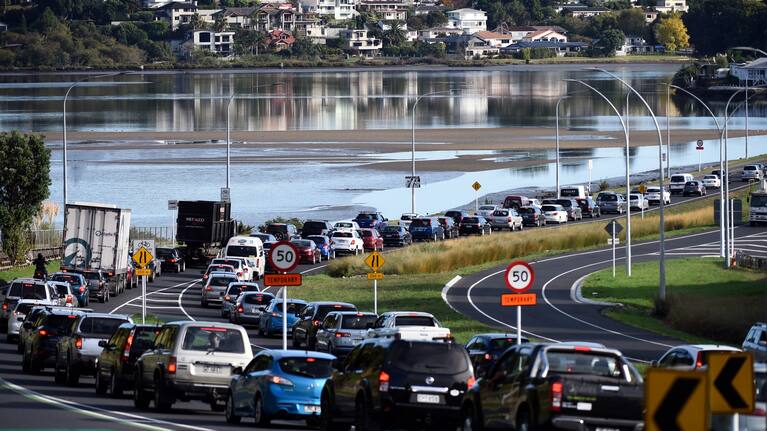Tauranga’s new council must decide whether to continue work to fluoridate the city’s water or try for an extension ahead of a looming deadline, otherwise it risks large fines.
At a meeting on Monday, the council will consider whether to start adding fluoride to the water supply from mid-September so it will comply with the November 30 deadline set by the Director General of Health.
Beginning in September would allow for testing ahead of full fluoridation.
If the council doesn’t comply with the fluoridation order it faces a potential fine of up to $200,000 and, if the non-compliance continues, it could be fined up to $10,000 per day.
A report from council staff recommended continuing with the “well progressed” fluoridation work and investigating options to provide a non-fluoridated water supply for those wanting it.
In July 2022, the Director-General of Health directed the council to fluoridate the city’s water supply by November 30, 2024.
Tauranga was one of 14 councils given the directive.
Western Bay of Plenty District Council failed in its bid for an exemption last year and must fluoridate by July 31, 2025.
Fluoridation is considered safe by the Ministry of Health and World Health Organisation and it is seen as an effective and affordable public health measure to improve oral health.
However, the move to fluoridate water has sparked opposition across the country.
Supporters of the Fluoride Free NZ group spoke at numerous community board and Tauranga council meetings when the city considered its fluoridation options.
In the past, Tauranga City Council has taken the position that fluoridation decisions are a health issue and should be made by the Ministry of Health, rather than by local authorities.
As a result, Tauranga City Council’s water supply has been un-fluoridated since 1992, the report from staff said.
An option in the report said the council could ask for an extension of the November 30 deadline.
This would allow time for a judicial review to be completed in 2025.
This follows New Health New Zealand Inc’s legal challenge of Director General of Health’s fluoride directive, which led to the review.
In November 2023, a High Court judgement questioned whether the direction to fluoridate water considered the Bill of Rights. The Director General of Health’s analysis of this is ongoing.
The Director-General of Health and the Attorney General have appealed the decision, which is scheduled to be heard in June 2025.
In February this year, Justice Radich issued a High Court judgement that confirmed the existing directions to fluoridate were legal and valid unless revoked by the Director General of Health.
The staff report also provides an option for council was to ignore the fluoridation direction, but it would risk being fined.
The council will receive $3.4 million from the Ministry of Health for the works required to fluoridate, provided it achieved one month of continuous operation of fluoridation operations by November 30.
Ferry fares
On Monday, the council will also consider funding for fare subsidies for a proposed ferry service between Tauranga and Mount Maunganui.
Auckland water taxi company Hauraki Express has asked the city council and Bay of Plenty Regional Council for $1.4m each over two years.
The company is prepared to build two ferries for the service if local councils are willing to subsidise the fares.
The ferries would run from Salisbury Wharf in downtown Mount Maunganui to Tauranga city centre.

Easing congestion
City councillors will also decide whether to endorse the business case for the Fifteenth Avenue to Welcome Bay’project to be submitted to NZ Transport Agency for funding.
The project aims to reduce congestion between Fifteenth Avenue and Welcome Bay by adding a third tidal flow lane on the Hairini Bridge and causeway.
Water, wastewater, and stormwater infrastructure would also be upgraded.
Mayor Mahé Drysdale said resolving congestion on this route would improve access to the city centre and help the economic growth of Tauranga.
The three-lane option made the best use of the existing bridge and offered good value for money, he said in a statement.
The meeting is at 9.30am on August 26 at the Bay of Plenty Regional Council.
It will be open to the public and livestreamed.
Local Democracy Reporting is local-body journalism co-funded by RNZ and NZ On Air.
